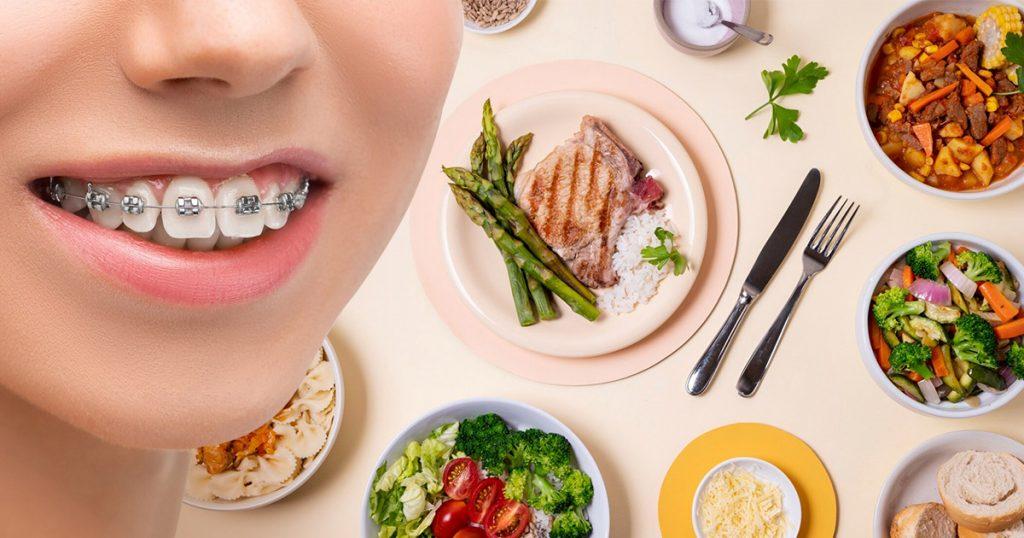Getting braces is a great choice for your dental health. They don’t just straighten your teeth; they can also fix your jaw alignment and improve your overall facial features. A study in the American Journal of Orthodontics and Dentofacial Orthopedics found that people who get braces often feel better about themselves and look better too. However, braces can be expensive and may cause some pain and soreness, especially at the beginning.
What to Expect When You Get Braces
Braces are dental tools that help straighten your teeth and fix your jaw alignment. They consist of small brackets attached to your teeth, connected by a wire that applies gentle pressure to move your teeth into the right position.
Initial Experiences with Braces
When you first get braces, you might notice:
- Pressure on Teeth and Gums: The braces put constant pressure on your teeth and gums, causing them to feel sore.
- Minor Abrasions: Your cheeks might get a bit irritated from rubbing against the brackets and wires.
- Tongue Irritations: Your tongue could develop small cuts from touching the new hardware in your mouth.
These feelings are normal and usually go away as your mouth gets used to the braces.
Why Braces Cause Pain and Swelling
The pain and swelling happen because your teeth and jaw are adjusting to the pressure from the braces. This pressure makes your teeth slowly move, which can cause temporary discomfort. Your body reacts to this pressure with inflammation, leading to some swelling.
How to Manage Pain and Swelling
To ease the discomfort and take good care of your braces, try these tips:
- Eat Soft Foods: Look for foods that are easy to chew and will not strain your teeth excessively (see the following section for more information).
- Use Orthodontic Wax: Apply wax to any wires or brackets causing you discomfort in your mouth.
- Gargle with Salt Water: Warm salt water can help reduce swelling and soothe sore areas.
- Take Over-the-Counter Pain Relief: If the pain is moderate, medications like ibuprofen can help alleviate it.
- Maintain Good Oral Hygiene: Brush and floss carefully to prevent food particles from becoming stuck in your braces, which can cause irritation or infection.
Choosing the Right Foods During the First Week with Braces
The first week with braces is very important because your mouth is adjusting to the new appliances. Your teeth and gums are extra sensitive, so eating the right foods can help reduce discomfort and prevent damage to your braces.
Why the First Week Matters
During the first week, your mouth is getting used to the pressure from the braces. Eating soft and easy-to-chew foods helps minimize pain and makes the adjustment period smoother. It’s best to avoid foods that could cause irritation or harm to your braces.
Foods to Eat
- Breakfast options include soft pancakes, yogurt, oatmeal, avocado mashed on toast, smoothies, and scrambled eggs.
- Lunch options include soup, soft tacos, grilled cheese sandwiches, macaroni and cheese, and creamy peanut butter and jelly on soft bread.
- Supper options include risotto, stewed or braised meats, fish, cooked vegetables, mashed potatoes, and pasta with a soft sauce.
- Bananas, pudding, Jell-O, ice cream, applesauce, and cottage cheese are examples of snacks.
These foods are easy to eat because they are soft and require little chewing. This helps reduce the strain on your sensitive teeth and gums.
Foods to Avoid
- Hard foods include ice, popcorn, nuts, and hard candies.
- Sticky foods include gummies, caramel, taffy, and chewy granola bars.
- Apples, carrots, and celery are examples of crunchy fruits and vegetables (unless they are chopped into small, manageable pieces).
- Chewing gum
Avoiding these foods is important because they can damage your braces by breaking brackets or bending wires. Sticky foods can also get stuck in your braces, making them harder to clean and increasing the risk of cavities.
Taking Care of Your Braces and Teeth
Watching what you eat is important, but it’s also essential to keep your teeth and braces clean. Here are some other ways to take care of your teeth when you have braces:
1. Brushing and Flossing
- Brush After Every Meal: Use a soft toothbrush and fluoride toothpaste to brush your teeth after each meal. Make sure you thoroughly clean the area around the wires and brackets.
- Use an Interdental Brush: This small brush helps you clean between the braces where your regular toothbrush can’t reach.
- Floss Daily: Use a floss threader or special floss for braces to clean between your teeth and around the braces.
2. Rinsing
- Use Mouthwash: Rinse with an antibacterial mouthwash to reduce plaque and keep your breath fresh.
- Salt Water Rinse: If you have any irritation or sores, rinsing with warm salt water can help soothe them.
3. Protecting Your Braces
- Avoid Chewing on Hard Objects: Don’t chew on pens, pencils, or fingernails, as these can damage your braces.
- Wear a Mouthguard: If you play sports, wear a mouthguard to protect your braces and teeth.
4. Regular Dental Visits
- See Your Orthodontist: Keep up with your appointments for adjustments and check-ups to ensure your treatment is going well.
- Visit Your Dentist: Continue to go to your regular dentist for cleanings and check-ups to maintain overall oral health.
You can ensure that your braces and teeth remain in excellent condition throughout your treatment by protecting them, eating soft foods, and practicing good oral hygiene. Taking these steps will help your orthodontic journey be as comfortable and effective as possible, leading to a healthier and more beautiful smile in the end.
